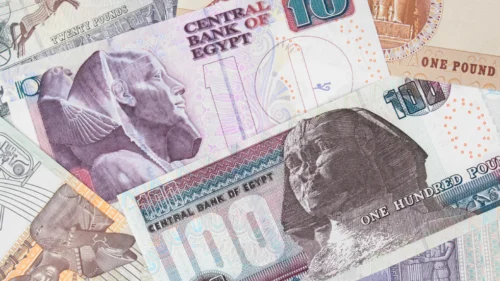A recent podcast episode featuring a well-known economist sparked a debate when the guest suggested that “some corruption” might, paradoxically, enhance economic growth in heavily bureaucratic systems. Although she later clarified that she does not endorse corruption, her comment raised an important question: Can corruption ever play a functional role in economic development?
While corruption — such as bribes or nepotism — is generally understood as a barrier to development and good governance, some scholars contend that in certain settings, it may help bypass systemic inefficiencies. This piece investigates the plausibility of “functional” or “efficient” corruption as well as the implications it holds for a state’s long-term governance.
Corruption can be a seductive solution to cut through red tape
In many low and middle-income countries, excessive and rigid bureaucracy may obstruct economic activity. Simple bureaucratic procedures, such as obtaining licenses or registering businesses, can become so complex that individuals resort to paying informal fees. These kinds of bribes are often referred to as “speed money,” as they expedite services. While these transactions signify institutional failure, they may temporarily improve service responsiveness.
China and India are illustrative examples. Both countries scored “highly corrupt” on the Corruption Perceptions Index (CPI) from Transparency International. Yet, China is the second-largest global economy, and India is the fourth. This raises an ethically fraught but analytically relevant question: Can informal payments, in the absence of institutional efficiency, serve as a short-term solution in enabling economic growth?
Recent research by various scholars has only added more nuance to this debate. A study by Shrabani Saha and Kunal Sen, based on data from over 100 countries spanning 1984 to 2016, found that the economic impact of corruption is heavily shaped by political context. In democratic regimes, corruption tends to be detrimental to growth. However, in an authoritarian setting, corruption may, under specific circumstances, facilitate limited economic growth.
The study goes on to outline four circumstances under which corruption might operate successfully:
- A strong and centralized authoritarian leadership;
- Bureaucratic accountability is maintained through strong political oversight;
- Systematic and predictable bribery practices, not random ones;
- Guaranteed delivery of services in exchange for illicit payments.
When these four conditions are met, corruption becomes embedded within a stable, though informal, system. This predictability may appeal to certain investors who prioritize procedural certainty over fairness and transparency.
Corrupt connections can give a boost — or get out of hand
A compelling example of this phenomenon is South Korea during the authoritarian rule of President Park Chung-hee in the 1960s and 1970s. As described by economist Michael Rock, President Park established symbiotic ties with various emerging industrialists. In exchange for meeting export targets, businesses received preferential access to credit and market monopolies. These firms, later known as “chaebols” (conglomerate businesses run by wealthy families), provided financial boosts to the state’s economy.
This corruption-led growth model enabled the rapid industrialization of South Korea. Rock also points out that this type of corrupt, politically mediated capitalism ensured discipline and accountability by tying rewards to performance. However, as the private sector kept gaining power, the original balance shifted. Instead of being kept in check by the state, these businesses started influencing the government. This led to unfair profit-seeking and elite capture (in which the wealthy divert resources), eroding the earlier model.
In addition to the political and social contexts, cultural circumstances can also facilitate corruption. Justin Fendos, writing for The Diplomat, points out how Confucian norms of loyalty to superiors and respect for hierarchy and kinship shape decisions made at the executive level. In government and business, leadership positions are often filled through personal networks; people are often promoted based on who they know and not because of their capabilities. This undermines meritocracy, leading to nepotism and inefficiency. Individuals feel obliged to promote their own people even if it comes at the cost of institutional fairness.
This kind of corruption also silences accountability and prevents the possibility of catching wrongdoings early. The Choi Soon-sil scandal under former South Korean President Park Geun-hye shows how personal loyalties can undermine institutional integrity. Allegedly, Choi had used her connections to Park in order to force chaebols into donating millions to two of her non-profit foundations. This scandal ultimately culminated in a political crisis and the impeachment of Park, exposing the risks of prioritizing personal networks over the rule of law.
So, while corruption may appear to act as a functional remedy to inefficient systems, it is often a symptom of a much deeper systemic problem. The case of South Korea clearly illustrates that while corruption may have coexisted with rapid growth in highly controlled systems, it also carries a significant amount of risks as well, such as elite capture, increased inequality, political crisis and loss of public trust.
Corruption is not sustainable in the long term
While some argue that organized corruption may help overcome bureaucratic inefficiencies in certain regimes, many warn against the severe long-term consequences. According to the World Bank, research by Daniel Kaufmann and Shang-Jin Wei found that the more companies relied on bribery, the more time they spent negotiating with officials. Ultimately, this adds to hidden costs and reduced transparency, further obstructing innovation and fair competition.
Additionally, corruption can increase wealth inequality. Well-connected firms might outcompete smaller, law-abiding businesses by exploiting informal networks and accessing public contracts. Over time, this undermines fairness and efficiency by concentrating both economic and political power in the hands of a few. Widespread corruption erodes public trust in these institutions. It may also distort public service delivery, meaning services like healthcare and education may start to serve private interests rather than public welfare and, therefore, damage institutional legitimacy.
Ultimately, corruption is a problem, not a solution. Bypassing systemic inefficiencies informally might not be an issue initially, but it has severe consequences in the long run. In essence, it is like solving a problem with another problem. Therefore, states cannot accept corruption as a permanent solution for economic progress.
We need to reframe the debate
Given these insights, an important question still remains: Can short-term economic gains from corruption ever justify the long-term erosion of institutional norms and fairness? The answer likely depends on the broader political and cultural context of the state. There is no one-size-fits-all answer, as the results aren’t the same everywhere. The same practice that fueled industrial growth in one country can easily destabilize another. Whether the short-term gains of corruption can be “worth it” is still a debate.
Rather than entirely endorsing or rejecting the idea of “corruption,” the debate must shift towards understanding the conditions in which corruption sustains and becomes functional. Future discussions must move beyond the perspective of corruption being just “good” or “bad.” Rather, researchers must gain deeper insight into the cultural, political and institutional contexts under which corruption interacts with a country’s governance.
The focus should not just be on whether corruption can lead to growth, but instead whether such growth is inclusive, sustainable and institutionally fair and sound. Since no single solution applies across all contexts, policymakers must focus on finding and fixing the underlying issues that enable corruption to become “efficient” in the first place. Only by addressing the root causes can we make true progress.
[Cheyenne Torres edited this piece.]
The views expressed in this article are the author’s own and do not necessarily reflect Fair Observer’s editorial policy.
Support Fair Observer
We rely on your support for our independence, diversity and quality.
For more than 10 years, Fair Observer has been free, fair and independent. No billionaire owns us, no advertisers control us. We are a reader-supported nonprofit. Unlike many other publications, we keep our content free for readers regardless of where they live or whether they can afford to pay. We have no paywalls and no ads.
In the post-truth era of fake news, echo chambers and filter bubbles, we publish a plurality of perspectives from around the world. Anyone can publish with us, but everyone goes through a rigorous editorial process. So, you get fact-checked, well-reasoned content instead of noise.
We publish 3,000+ voices from 90+ countries. We also conduct education and training programs
on subjects ranging from digital media and journalism to writing and critical thinking. This
doesn’t come cheap. Servers, editors, trainers and web developers cost
money.
Please consider supporting us on a regular basis as a recurring donor or a
sustaining member.
Will you support FO’s journalism?
We rely on your support for our independence, diversity and quality.








Comment